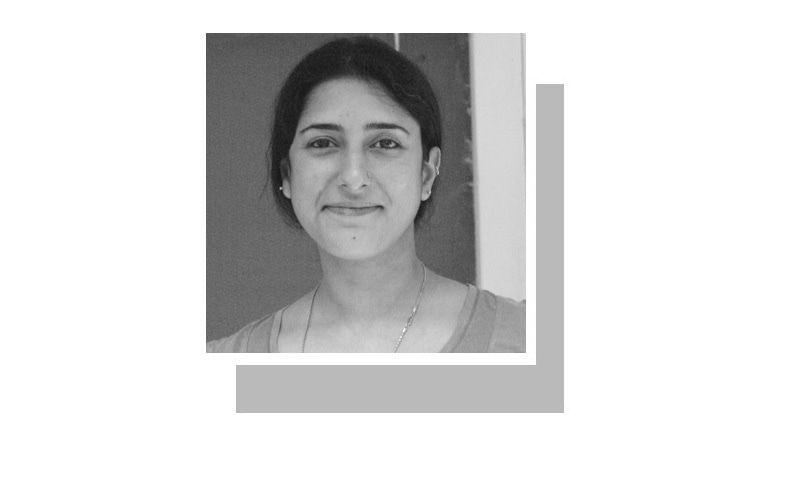
IN the city by the sea, residents living near the coastline are now and then subjected to a foul stench beyond what are considered the normal levels in this famously trash-infested metropolis. This is because the odour given off by trucks transporting the marine catch does not get blown away by the winds.
This may be non-news in Karachi, but far up north in the Islamabad-Rawalpindi area, a similar phenomenon is near-impossible to imagine. The area is well known for its lushness and the beauty of its hillsides and slopes. Around this time of the year, it is characterised by the full splendour of the monsoons, the happy coming together of climate and environment.
Or at least, that used to be the case. A couple of weeks ago, those living in areas close to the Rawal Lake found that the air had turned foul. It turned out that thousands of fish had died in the waters over the course of just a few days, their carcasses floating to the surface with the heat doing the rest.
We are drowning under the weight of our own trash.
Investigations by city authorities and reported by the press concluded that the lake’s water had reached an “unprecedented level of contamination following an inflow of rainwater that brought waste into the reservoir from [the adjacent residential locality of] Banigala and other areas.” This occurred at a point when the lake’s capacity had fallen to alarmingly low levels — a result of the long, hot summer — so that the banks of the dam were dry and one could walk to spots that ought normally to have been under water.
The result, obviously, was stagnation and decay.
But it was not just a case of an unfortunate confluence of events. Over the past couple of decades, the area and the lake have been victim to hugely irresponsible human activities, including the construction of settlements without sufficient planning. The posh locality of Banigala came up in the first place because the surroundings were so heart-stoppingly beautiful. Our nuclear genius, Dr A.Q. Khan, was one of the earlier landholders there and the locality is now often in the news because that it is home to Imran Khan.
The early establishments set up there were sprawling villas and farmhouses. This was bad enough, yet matters were compounded by the issue that must inevitably occur in a population-heavy country: thousands of others followed in the footsteps of the rich — in no small part because the wealthy need catering to — and by now, the area’s population has reached unplanned-for proportions.
The latter bit is crucial, because here’s the problem: there is no formal sewerage system in the area, so the owners of establishments have to build septic tanks. And septic tanks are ‘clean’ insofar as they are scattered enough in number for nature to be able to deal with the waste generated by humanity; take the population above a certain level and the ratio becomes untenable. This is what was evident at Rawal Lake this summer.
Add to this the fact that the reservoir is a popular picnic spot as it is easily accessible and affordable. Right on its banks, in fact, is a full-scale amusement park accompanied with the small industries that spring up around such spots — balloon and food vendors, etc. On the southern bank, boats can be rented out for a few hours enjoyment, and there are eateries here as well. Given that Pakistan is not a nation particularly known for its concern for or awareness of the environment, imagine the amount of trash that goes into the lake’s waters. And this is in addition to all the garbage that is washed downstream into the reservoir, which is a catchment area for the surrounding hills.
It can be argued that the ongoing rains will replenish the lake and the piscine population will heal itself. Even if this does happen, that ought not blind city authorities across the country to the fact that this sorry tale is being repeated everywhere, without any sort of check, to proportions that are utterly unsustainable. Be it the coastline of Karachi, where tens of thousands of gallons of raw sewage flow into the sea every day (in addition to solid trash), or holiday spots in the erstwhile pristine north such as Lake Saiful Muluk, where plastic garbage has reached horrible proportions, this country seems to be drowning under the weight of its own waste.
The issue is not ‘merely’ one of environmental concerns, often dismissed by the foolish as a luxury. It is one of poisoning the very land and water that sustains this citizenry, and of established matters such as the disease burdens and associated healthcare costs. Awash in a culture of consumerism and fecklessness, this is an issue that Pakistan really ought to find the time to pay attention to — once it gets past the more immediate political crises, of course.
The writer is a member of staff.
Published in Dawn, July 31st, 2017












































